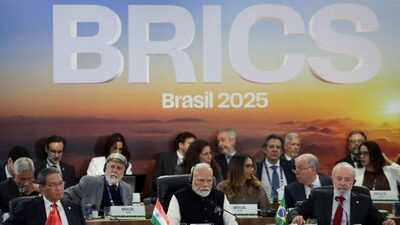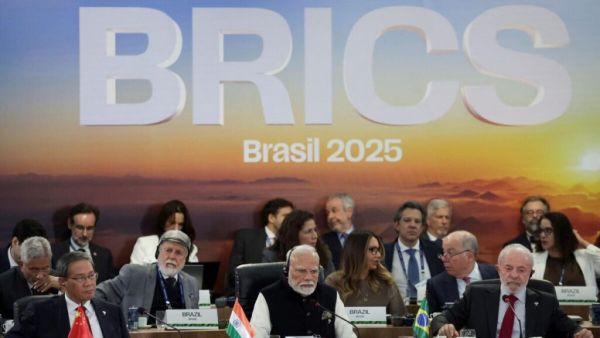

Leaders from the BRICS group of developing nations gathered in Rio de Janeiro over the weekend, focusing a significant part of their summit discussions on artificial intelligence while pushing for stronger global data protection norms and fair payment mechanisms from big tech firms. The summit highlighted the bloc’s increasing role as a diplomatic platform amid growing global tensions and economic shifts, reinforcing calls for reforming international institutions and protecting the autonomy of emerging economies.
The two-day summit, held at Rio’s Museum of Modern Art, witnessed leaders from Brazil, India, South Africa, and others addressing pressing issues of AI data use, global conflicts, and economic protectionism. The draft statement from the summit, reviewed by Reuters, indicates that BRICS leaders are set to call for safeguards against the unauthorised use of AI, aiming to prevent excessive data harvesting and to establish fair payment systems for data usage, an area where major tech firms from wealthier nations have often resisted paying copyright fees for materials used to train AI models.
A Platform for Multilateral Diplomacy
The summit comes at a time when platforms like the G7 and G20 face internal divisions, with the “America First” approach adopted previously by the United States creating a vacuum in multilateral diplomatic efforts. Brazilian President Luiz Inacio Lula da Silva, in his opening address, compared the current role of BRICS to the Cold War-era Non-Aligned Movement, describing the bloc as its modern heir at a time when multilateralism faces threats globally.
Lula emphasised the bloc’s significance by noting that BRICS nations now represent more than half of the world’s population and account for around 40% of global economic output. He cautioned against rising protectionism, urging the BRICS nations to work collectively to preserve the autonomy of developing countries while ensuring equitable participation in the evolving global order.
Expanding BRICS and Calls for Reform
The BRICS bloc, which began in 2009 with Brazil, Russia, India, and China, and later added South Africa, has expanded in recent years to include Egypt, Ethiopia, Indonesia, Iran, Saudi Arabia, and the UAE, reflecting its growing diplomatic appeal. This summit marks Indonesia’s first participation as a BRICS member, underlining the group’s efforts to diversify and broaden its global presence.
A Brazilian diplomat, speaking anonymously, remarked that the BRICS are quickly filling the diplomatic void left by traditional forums, although acknowledging that while the G7 continues to hold significant power, its dominance is no longer unchallenged. The summit also drew attention to geopolitical tensions, with BRICS nations condemning attacks on Gaza and Iran, while reiterating their commitment to multilateral dialogue as a tool for resolving conflicts and enhancing global cooperation.
The summit saw the participation of Indian Prime Minister Narendra Modi and South African President Cyril Ramaphosa, while Chinese President Xi Jinping sent his premier in his place, and Russian President Vladimir Putin attended virtually due to the International Criminal Court’s arrest warrant against him.
With over 30 countries expressing interest in joining BRICS as either full members or partners, the summit signals a potential shift in global power dynamics, presenting BRICS as a viable platform for countries seeking alternatives to traditional Western-led institutions. Despite concerns regarding the varied interests of the expanding bloc, the BRICS leaders’ discussions in Rio underscored a shared commitment to shaping a fairer and more inclusive global economic and political system.
The post Brics leaders push for AI data safeguards, global reforms amid expanding bloc influence | cliQ Latest appeared first on CliQ INDIA.